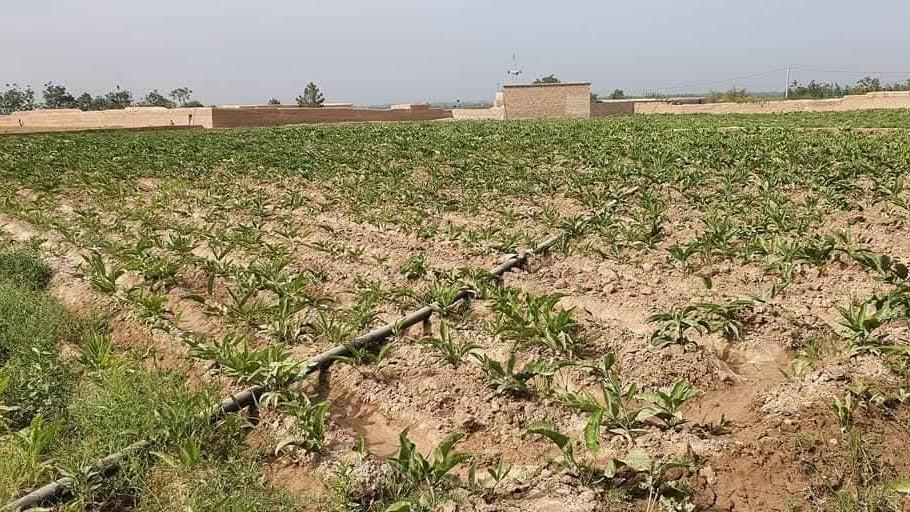TIRINKOT (Pajhwok): A number of farmers in central Uruzgan province have switched to growing asafoetida, urging the government to find markets for their produce.
After the Islamic Emirate of Afghanistan (IEA) leadership imposed a ban on the cultivation of narcotic plants across the country two years ago, farmers in Uruzgan started cultivating asafoetida.
Lal Mohammad, a grower from Talani area of Tirinkot, the provincial capital, said he planted asafoetida on one jerib of his land one year ago.
He expressed optimism, saying, “I am very hopeful about it, because now there are no opium poppies, and asafoetida is a good alternative to opium.”
Similarly, Haji Tokhan, a farmer from the Dihrawud district, also planted asafoetida on his land.
He added asafoetida took three years to give yield and was planted as saplings.
He mentioned that his crop was nearing harvest time, and if the government assisted them in finding a suitable market, he expected to earn a good profit.
However, farmers face challenges, as seeds of asafoetida are sold at a high price in the market. Mohammad Isa, a farmer from the Chura district, explained that the seeds cost between 10,000 and 15,000 afghanis per kilogram.
He added, “Not every farmer can afford to buy the seeds, so the government and aid organizations should assist us by providing seeds or saplings.”
Meanwhile, officials from the Agriculture, Irrigation, and Livestock Department of the province reported that, for the first time this year, asafoetida has been planted on 20 hectares of land in Uruzgan.
Mullah Abdul Manan, spokesman for the department, told Pajhwok Afghan News that asafoetida was a good and suitable alternative to poppy.
He added: “We are working to find both domestic and international markets for Urozgan farmers’ asafoetida produce.”
According to Farooqi, several organizations have been encouraged to cooperate with farmers in the areas of asafoetida cultivation, development, and training.
kk/ma








GET IN TOUCH
NEWSLETTER
SUGGEST A STORY
PAJHWOK MOBILE APP